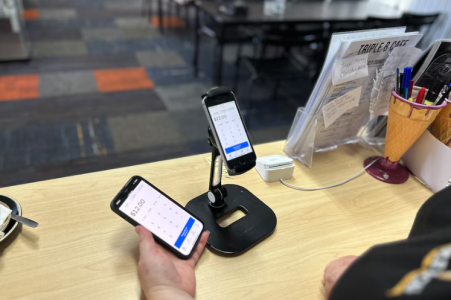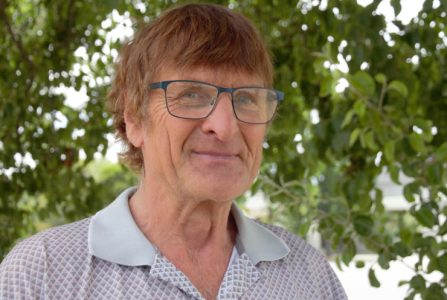Ombudsman warns telcos to help in poor services areas after 3G shutdown
By
ABC News
- Replies 0
Australia's Telecommunications Ombudsman says the shutdown of Australia's 3G network has resulted in "life-threatening situations".
Cynthia Gebert released her department's first quarter report, which showed that while complaints to the ombudsman about the 3G network had fallen, the issues that remained were complex.
"Particularly in rural and regional settings, where farm operations are impacted, people who need it to operate a small business [and] we have heard circumstances of unreliable service creating life-threatening situations," she said.
Ms Gebert said people had become reliant on phones and connectivity, not just to communicate over the phone.
"Things like medical alert devices, farming equipment, all those sorts of things; they are so important now and people have built lives, communities and businesses around it," she said.
"It's creating all sorts of challenges when they can't be reliant on that."
The data showed complaints to the Telecommunications Industry Ombudsman about service providers were up 6.9 per cent in the first three months of 2025, with 25.3 per cent about poor mobile phone coverage, while reports of financial hardship increased by 72 per cent.
The hardship reports included telcos refusing payment plans and disconnecting or suspending phone and internet services.
"Telcos still have work to do in terms of providing tailored support and repayment options for people that reflect their individual circumstances," Ms Gebert said.
"Disconnection or suspension of essential telco services should absolutely be a last resort."
Small towns struggling
The town of Bingara in the north-west of New South Wales has a population of 1,300.
Local accountant Sam Groth said congestion issues resulted in little or no service, even in the centre of town.
"I can be having a coffee with someone in the main street and when we go to open up an email and click on an online link, you just get the wheel of death," he said.
"I get complaints daily from clients who can't even scan a document and email it back."
Mr Groth said EFTPOS services had been intermittent, and text messages and phone calls often did not come through or dropped out, which had a detrimental effect on the town.
"You've got travellers coming through and if they can't connect, that affects your reputation as a tourism provider," he said.
He believed money needed to be spent on increasing the capacity of the tower, but suspected Telstra did not want to spend it on the small town.
"There's not enough subscribers to invest in the infrastructure," he said.
Mr Groth said he had clients running large agricultural businesses who were having significant problems, but complaints to Telstra were getting nowhere.
"Their response has been, 'There are no outages, there is no problem recorded at the tower,'" he said.
In a statement, Telstra regional general manager Chris Taylor said there were plans to upgrade the Bingara site later this year to increase capacity, as well as deliver 5G to the town for the first time.
"The site can currently get busy during peak periods like the school holidays and this upgrade should help deliver a much better experience all year round," a Telstra spokesperson said.
Farmers frustrated
Farmer Bruce Kreutzberger lives on a property 20 kilometres from Walla Walla in the Riverina region of NSW.
When the 3G network was switched off, he lost phone service at his home and took to driving up a nearby hill to get line-of-sight access to a signal from the nearest Telstra tower.
Mr Kreutzberger later bought a new "blue tick" mobile phone — certified to give superior coverage in rural and regional areas — which he said improved things.
"My new phone shows no bars of signal, but I can actually make a call at the house," he said.
But Mr Kreutzberger said he had experienced congestion issues in his area as well.
He said he had given up complaining about the issue.
"I don't bother talking to Telstra at all anymore." Mr Kreutzberger said.
Mr Taylor said individual reception could be affected by the handset customers were using and the topography of the region.
"Our 4G coverage is available in and around Walla Walla but the surrounding terrain and vegetation in the area can affect it in some parts," he said.
Mr Taylor said Telstra was also working on plans to upgrade both sites to provide additional capacity and to deliver 5G.
Telstra, Optus and Vodaphone shut down their 3G networks in 2024 to use that spectrum to improve 4G and 5G services, but the ombudsman said she had not seen any signs of improvement yet.
"It's something we're keeping an eye on because … if it doesn't fulfil those expectations, that leads to a lot of frustration," she said.
Written by David Claughton, ABC News.
Cynthia Gebert released her department's first quarter report, which showed that while complaints to the ombudsman about the 3G network had fallen, the issues that remained were complex.
"Particularly in rural and regional settings, where farm operations are impacted, people who need it to operate a small business [and] we have heard circumstances of unreliable service creating life-threatening situations," she said.
Ms Gebert said people had become reliant on phones and connectivity, not just to communicate over the phone.
"Things like medical alert devices, farming equipment, all those sorts of things; they are so important now and people have built lives, communities and businesses around it," she said.
"It's creating all sorts of challenges when they can't be reliant on that."
The data showed complaints to the Telecommunications Industry Ombudsman about service providers were up 6.9 per cent in the first three months of 2025, with 25.3 per cent about poor mobile phone coverage, while reports of financial hardship increased by 72 per cent.
The hardship reports included telcos refusing payment plans and disconnecting or suspending phone and internet services.
"Telcos still have work to do in terms of providing tailored support and repayment options for people that reflect their individual circumstances," Ms Gebert said.
"Disconnection or suspension of essential telco services should absolutely be a last resort."
Small towns struggling
The town of Bingara in the north-west of New South Wales has a population of 1,300.
Local accountant Sam Groth said congestion issues resulted in little or no service, even in the centre of town.
"I can be having a coffee with someone in the main street and when we go to open up an email and click on an online link, you just get the wheel of death," he said.
"I get complaints daily from clients who can't even scan a document and email it back."
Mr Groth said EFTPOS services had been intermittent, and text messages and phone calls often did not come through or dropped out, which had a detrimental effect on the town.
"You've got travellers coming through and if they can't connect, that affects your reputation as a tourism provider," he said.
He believed money needed to be spent on increasing the capacity of the tower, but suspected Telstra did not want to spend it on the small town.
"There's not enough subscribers to invest in the infrastructure," he said.
"Their response has been, 'There are no outages, there is no problem recorded at the tower,'" he said.
In a statement, Telstra regional general manager Chris Taylor said there were plans to upgrade the Bingara site later this year to increase capacity, as well as deliver 5G to the town for the first time.
"The site can currently get busy during peak periods like the school holidays and this upgrade should help deliver a much better experience all year round," a Telstra spokesperson said.
Farmers frustrated
Farmer Bruce Kreutzberger lives on a property 20 kilometres from Walla Walla in the Riverina region of NSW.
When the 3G network was switched off, he lost phone service at his home and took to driving up a nearby hill to get line-of-sight access to a signal from the nearest Telstra tower.
Mr Kreutzberger later bought a new "blue tick" mobile phone — certified to give superior coverage in rural and regional areas — which he said improved things.
"My new phone shows no bars of signal, but I can actually make a call at the house," he said.
But Mr Kreutzberger said he had experienced congestion issues in his area as well.
He said he had given up complaining about the issue.
"I don't bother talking to Telstra at all anymore." Mr Kreutzberger said.
Mr Taylor said individual reception could be affected by the handset customers were using and the topography of the region.
"Our 4G coverage is available in and around Walla Walla but the surrounding terrain and vegetation in the area can affect it in some parts," he said.
Mr Taylor said Telstra was also working on plans to upgrade both sites to provide additional capacity and to deliver 5G.
Telstra, Optus and Vodaphone shut down their 3G networks in 2024 to use that spectrum to improve 4G and 5G services, but the ombudsman said she had not seen any signs of improvement yet.
"It's something we're keeping an eye on because … if it doesn't fulfil those expectations, that leads to a lot of frustration," she said.
Written by David Claughton, ABC News.











